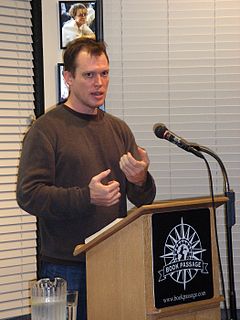A Quote by Dawn Foster
Focusing only on street homelessness is resource-intensive, and acts after the rough sleeper has already endured significant hardship and trauma. Acting before people are homeless makes far more sense, economically and for the long-term wellbeing of a household.
Related Quotes
God has identified himself with the hungry, the sick, the naked, the homeless; hunger not only for bread, but for love, for care, to be somebody to someone; nakedness, not for clothing only, but nakedness of that compassion that very few people give to the unknown; homelessness, not only just for a shelter made from stone but for that homelessness that comes from having no one to call your own.
It's very important that we expand our use of clean energy and make a long-term commitment to it. Biodiesel and ethanol are better for the environment and for the air we breathe. The use of biodiesel is a positive step toward minimizing pollutive emissions and greenhouse gases. By focusing on school buses, we can affect the health and wellbeing of the people most susceptible to that pollution - our children - today.
If we take a hard look at what poverty is, its nature, it's not pretty - it's full of trauma. And we're able to accept trauma with certain groups, like with soldiers, for instance - we understand that they face trauma and that trauma can be connected to things like depression or acts of violence later on in life.
Long-term travel isn’t about being a college student; it’s about being a student of daily life. Long-term travel isn’t an act of rebellion against society; it’s an act of common sense within society. Long-term travel doesn’t require a massive “bundle of cash”; it requires only that we walk through the world in a more deliberate way.
Already, new forms of short-term and long-term rental housing are popping up in some metro areas. You can take on a house or apartment for a few months or even a year or two in developments that are striving to provide critical elements of community - schools, healthcare, social and cultural institutions - even for people who are living there only temporarily. People invested in a home, mortgage, or community are less likely to move to more economically vibrant locales. That kind of entrenchment is going to be an impediment to the coming spatial fix.
































